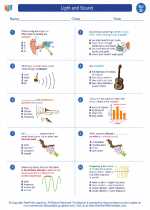Surgery: An Overview
Surgery is a medical specialty that uses operative manual and instrumental techniques on a patient to investigate or treat a pathological condition such as a disease or injury, to help improve bodily function or appearance, or to repair unwanted ruptured areas. The act of performing surgery may be called a surgical procedure, operation, or simply "surgery."
Types of Surgery
There are various types of surgeries, some of which include:
- Elective Surgery: Planned surgery which is chosen by the patient to improve their quality of life.
- Emergency Surgery: Surgery that must be done promptly to save life, limb, or functional capacity.
- Exploratory Surgery: A surgical operation to examine or determine the extent of a disease.
- Reconstructive Surgery: Surgery performed to restore the form and function of the body.
- Minimally Invasive Surgery: Surgery performed through tiny incisions, or operating ports, using small instruments and cameras.
Study Guide
If you are studying surgery, consider the following key points:
- Understand the different types of surgeries and their purposes.
- Learn about the history and evolution of surgery as a medical practice.
- Explore the advancements in surgical techniques and technologies.
- Understand the pre-operative and post-operative care procedures.
- Study the ethical and legal aspects of surgery.
Remember, surgery is a complex and intricate field that requires a deep understanding of anatomy, physiology, and medical technology. It is essential to approach the study of surgery with respect for the skill and precision it demands.
[Surgery] Related Worksheets and Study Guides:
.◂Science Worksheets and Study Guides Fourth Grade. Light and Sound
Study Guide Light and sound
Light and sound  Worksheet/Answer key
Worksheet/Answer key Light and sound
Light and sound  Worksheet/Answer key
Worksheet/Answer key Light and sound
Light and sound  Worksheet/Answer key
Worksheet/Answer key Light and sound
Light and sound  Vocabulary/Answer key
Vocabulary/Answer key Light and sound
Light and sound  Vocabulary/Answer key
Vocabulary/Answer key Light and sound
Light and sound  Vocabulary/Answer key
Vocabulary/Answer key Light and sound
Light and sound 

 Worksheet/Answer key
Worksheet/Answer key
 Worksheet/Answer key
Worksheet/Answer key
 Worksheet/Answer key
Worksheet/Answer key
 Vocabulary/Answer key
Vocabulary/Answer key
 Vocabulary/Answer key
Vocabulary/Answer key
 Vocabulary/Answer key
Vocabulary/Answer key

The resources above cover the following skills:
PHYSICAL SCIENCE (NGSS)
Waves and their Applications in Technologies for Information Transfer
Students who demonstrate understanding can:
Develop a model of waves to describe patterns in terms of amplitude and wavelength and that waves can cause objects to move.